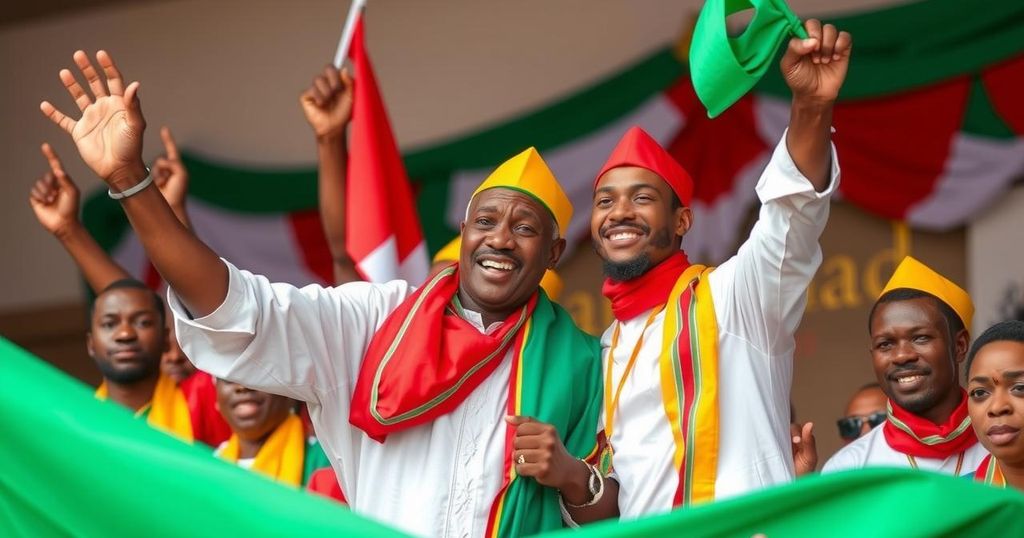Chad’s ruling Patriotic Salvation Movement secured a majority in the parliamentary elections, winning 124 of 188 seats, amid a boycott from significant opposition parties. The elections mark a key step in Chad’s transition to democracy following Mahamat Idriss Deby’s military leadership since 2021. With a voter turnout of 51.5%, Deby highlighted the elections as the beginning of decentralization efforts for better governance against a backdrop of existing security challenges.
Chad’s ruling party, the Patriotic Salvation Movement (PSM), has successfully secured a majority in the parliamentary elections that were held last month, amidst a boycott from significant opposition groups. The provisional results reveal that the PSM won 124 out of 188 seats, with a voter turnout of 51.5%, according to Ahmed Bartchiret, the head of the electoral commission. This election marks a pivotal moment in Chad’s political landscape as it signifies the culmination of the nation’s transition towards democracy following Mahamat Idriss Deby’s ascension to power as a military leader in 2021.
This parliamentary election was the first of its kind in over ten years in Chad and also encompassed regional and municipal contests. President Deby emphasized that the polls would introduce a long-anticipated era of decentralization, which aims to distribute power more equally across various local and regional entities. Despite calls for participation, more than ten opposition parties, including the Transformers party—whose candidate, Succes Masra, was the runner-up in the last presidential election—did not partake. The main opposition has yet to provide a statement regarding the election outcomes.
The recent vote comes at a critical juncture for Chad, as the country confronts heightened security threats, including Boko Haram incursion in the Lake Chad region and a significant strain in its historical ties with France, its previous colonial ruler. The election is pivotal not only for the ruling party but also for the future governance and stability of Chad, which has faced numerous challenges in the wake of regime changes.
Chad has undergone a profound political transformation since Mahamat Idriss Deby assumed control as a military ruler following the death of his father, Idriss Deby Itno, who governed for three decades. The country had not conducted a parliamentary election for over ten years, making these elections significant for its political evolution and efforts towards democratic governance. The ruling party’s recent victory is indicative of the prevailing dynamics within Chad’s political framework, particularly in light of the opposition’s absence from the polls, which raises questions about representation and legitimacy in the democratic process.
In conclusion, the ruling Patriotic Salvation Movement’s victory in Chad’s parliamentary elections marks a significant milestone in the nation’s democratization process. However, the widespread boycott by opposition parties raises important considerations about political representation and the inclusiveness of the democratic process. As Chad faces pressing security issues and navigates its newly established political landscape, the implications of this electoral outcome will be critical in shaping its future governance.
Original Source: www.trtworld.com






